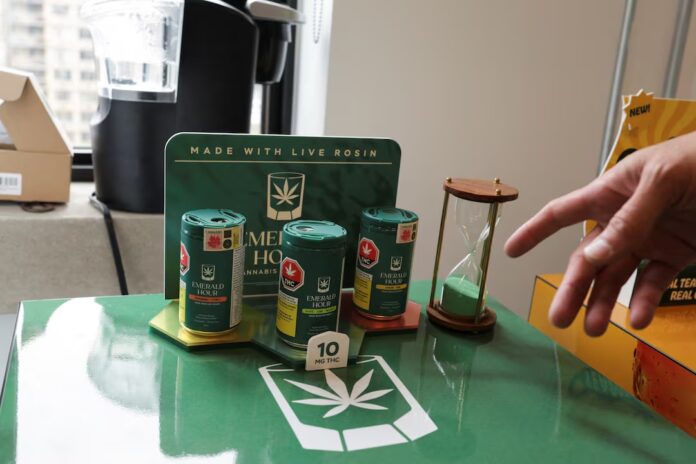
Major alcohol manufacturers are preparing to re-enter the cannabis market as THC-infused beverages gain ground and traditional alcohol sales continue to slump.
Brands like Cann and Wynk, known for their cannabis seltzers, are rapidly expanding across liquor store shelves, supermarkets, and convenience stores, largely through drinks made from federally legal hemp-derived THC. These products sidestep stricter dispensary-only rules in the 24 U.S. states where marijuana is legal, creating a fast-growing, billion-dollar opportunity that the alcohol industry is no longer ignoring.
Top players including Constellation Brands (Corona), Pernod Ricard (Absolut Vodka), and Boston Beer (Sam Adams) are quietly laying the groundwork to enter or expand in the THC beverage space. Pernod recently held investment talks with hemp-based drink maker Brez, while Boston Beer has tested U.S. versions of its Canadian Teapot THC tea.
“Hemp-based drinks are a clear growth opportunity,” said Paul Weaver, Boston Beer’s head of cannabis. “This is a source of growth for our organization, flat out.”
U.S. alcohol sales are weakening after a pandemic-era boom, with beer volumes dropping 6% and spirits down 5.6% through May, according to industry groups. Health concerns, rising prices, and shifting consumer preferences are driving the decline, prompting liquor stores to seek out new high-margin products like THC seltzers.
Retailers are responding. Minnesota’s Top Ten Liquors reports THC drinks now make up 15% of its sales, expected to rival wine by next year. Distributors like Southern Horizon Logistics and Best Brands say the booming cannabis drink segment has offset declining alcohol sales—and even averted layoffs.
Still, Big Alcohol is treading cautiously. Past cannabis investments led to mixed results, with Anheuser-Busch and Molson Coors scaling back operations in 2022. Regulatory uncertainty remains a hurdle, especially with lawmakers like Sen. Mitch McConnell pushing to restrict intoxicating hemp products.
Despite these challenges, the market for hemp-derived THC drinks is projected to top $1 billion this year and soar to over $4 billion by 2028, according to Euromonitor.
As consumer tastes evolve, industry experts say it’s no longer a question of if, but when alcohol giants will fully embrace the cannabis beverage revolution.
Written By Rodney Mbua


















